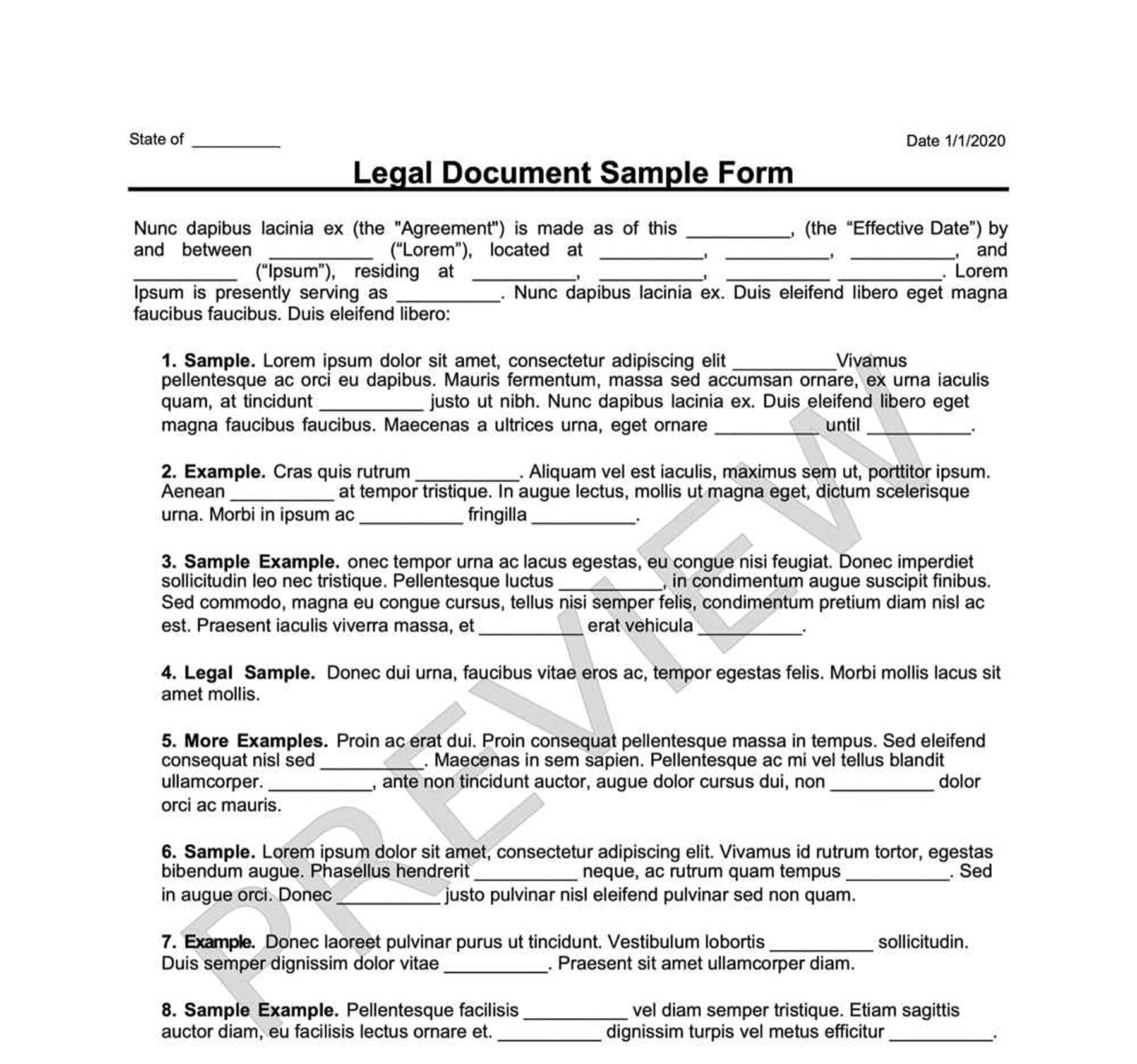Corporate Resolution
A Corporate Resolution document documents all the significant decisions made by the board of directors or shareholders at a corporation’s formal meeting.

How it Works
Build your selected document.
Answer a few simple questions with step-by-step instructions.
Print & download forms instantly. Sign & make it legal.
What Is a Corporate Resolution?
By law, every corporation must keep a record of all significant decisions made. A Corporate Resolution does precisely that.
A Corporate Resolution indicates a binding corporate action. In most cases, the document contains all newly established policies, executive appointments, and affirmations of the corporation's direction.
A Corporate Resolution is a binding document providing the framework for how the board of directors should act in certain situations. The document also leaves a paper trail of all significant decisions made.
What Is a Corporate Resolution?
Corporate Resolutions are usually filed alongside meeting minutes, another in-house corporate document. While one uses meeting minutes to keep track of the agenda and all actions taken in the meeting, Corporate Resolutions are the important new decisions about the company.
For example, a Corporate Resolution outlines a corporation establishing itself as an independent legal entity. There are many other types of decisions that can qualify as Corporate Resolutions.
A standard resolution is the authorization of certain people in the corporation to open a bank account and write checks in the company's name. Other common resolutions include the purchase of real estate for the corporation and applying for loans and credit.
Many corporations use Corporate Resolutions to vote for new board members. When two corporations talk about a merger or acquisition, they use a Corporate Resolution to that effect.
Other Names for Corporate Resolution
Depending on your state, a Corporate Resolution may also be known as:
-
Corporate Board Resolution
-
Certificate of Corporate Resolution
-
Corporate Resolution Certification
-
Certified Corporate Resolution
-
Board of Directors' Corporate Resolution
-
Directors' Resolution
-
Board Resolution Format
Who Needs a Corporate Resolution
All corporations are technically required to use Corporate Resolutions to document the actions and decisions arrived at by the board of directors. Essentially, the goal is to keep the board accountable to their fiduciary responsibilities.
Since a corporation is a separate entity to the members and shareholders, it is imperative to demonstrate its independence concerning its decisions and action through a Corporate Resolution. They are the necessary corporate shield that protects the owners from potential claims of liability.
Why Use Swyft Forms for Your Corporate Resolution
Customized for you, by you
Create your own documents by answering our easy-to-understand questionnaires to get exactly what you need from your Corporate Resolution.
Specific to Your Jurisdiction
Laws vary by location. Each document on Swyft Forms is customized for your state.
How to Create a Corporate Resolution with Swyft Forms
A Corporate Resolution should be clear and concise in documenting the board's decision. Things get much easier if you go with a proven Corporate Resolution template.
Let Swyft Forms help with our extensive library of attorney-vetted legal forms. The process is fast and easy. All you have to do is fill out our easy-to-understand questionnaire. Once complete, simply download your form as a PDF or Word document from your secure online account.
What Information Will I Need to Create My Corporate Resolution?
To create your document, please provide:
-
Date and location: The date and address where the resolution was made.
-
The State: The state where the corporation was incorporated.
-
Title of the document: Most commonly, the decision is also the title.
-
Corporation's Name: Full legal name of the corporation.
-
Details of the decisions: Every decision made is listed separately and briefly explained, in addition to whether it is the handiwork of the board of directors.
-
Names and signatures: In most cases, the board's chairman signs the document, though sometimes all the directors may also sign.
Corporate Resolution Terms
-
Shareholder: A person owning shares in a corporation
-
Board of directors: A group of directors appointed by the shareholders of a corporation to act on their behalf
-
Meeting Minutes: A written record of every action taken in a corporation's formal meeting
-
Annual Meeting: A formal meeting held at the end of the fiscal year
-
Fiduciary: A person supposed to act in another's best interests
-
Revenue: The annual gross receipts of a corporation
-
Joint Venture: A business arrangement between two or more companies wherein they group their resources to achieve a common goal
-
LLC Resolution: The LLC's version of a Corporate Resolution
Corporate Resolution Signing Requirements
Critically, a Corporate Resolution retains the board's exact wording. Any discrepancy could render the resolution invalid. The Managing Director or the Chairperson most common signs the original copy of a Corporate Resolution, and less typically by any two directors.
What to Do with Your Corporate Resolution
After a Corporate Resolution is signed, file it alongside all other resolutions and formal documents in the corporation's minute book. An internal document does not have to be filed with any state authority or be notarized. However, it is not out of the realm of possibility for state or federal agencies to request a corporation's particular resolutions for closer examination.
Other Names for Corporate Resolution
- Corporate Resolution Form
- Corporate Resolution Document
- Corporate Resolution Agreement
- Corporate Resolution Contract
- Corporate Resolution Template
- Corporate Resolution Checklist
Who Needs a Corporate Resolution?
Why Use Swyft Forms for Your Corporate Resolution
Customized for you, by you
Specific to Your Jurisdiction
Why choose Swyft Forms?
Create professional documents for thousands of purposes.
Make unlimited documents and revisions.
Our documents are vetted by lawyers and are applicable to all 50 states.
